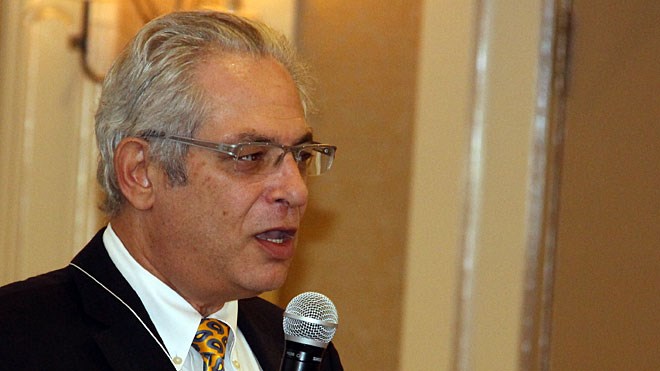The wishes and concerns of older people are too often ignored, when it comes to decisions about their health care and end-of-life plans.
That was the message Mark Handelman, counsel with the Whaley Estate Litigation firm in Toronto, delivered at the the Northeastern Elder Abuse Conference Wednesday.
“Maybe you get to a point in your life where, as a result of pain and prospects, you don't wish further life support,” Handelman said. “Those decisions need to be based on the individual's wishes, values and beliefs — not on what other people think is the right thing to do.”
According to the Health Care Consent Act, a person is able to make decisions about their own care if they are able to understand information that is relevant to making those decisions, and if they are able to appreciate the reasonably foreseeable consequences of a decision, or the lack of a decision.
Handelman said he has witnessed too many cases where family members, and even health-care professionals, assumed an older person did not meet the criteria to make their own decisions, and moved ahead with a treatment plan that may not have been in keeping with the individual's wishes.
Handelman said there is no such thing in the law as someone who is incapable forever of making all treatment decisions.
Even a person with dementia, he said, can have moments in the day or week where they are able to make their own decisions regarding their care and end-of-life wishes.
“They can be good before lunch, and by three o'clock they've lost the ability to make a decision,” Handelman said.
He added that for a number of reasons, health-care providers often don't take the time to properly assess their patients and listen to their wishes.
When a person's care decisions are not recognized, it can result in unintentional abuse, such as sending a loved one to a nursing home against their will, even if other options for their care may exist, said Handelman.
He said it's important for people of any age to choose a substitute decision-maker and discuss their wishes for treatment and end-of-life care, should they become gravely ill.
“We're all going to get old, if we're lucky, and we're all going to be facing this,” he said.
The Northeastern Elder Abuse Conference gathered local health-care providers and police to discuss elder abuse – ranging from physical abuse, to sexual abuse, psychological abuse and financial abuse – and ways to mitigate it.
Join Sudbury.com+
- Messages
- Post a Listing
- Your Listings
- Your Profile
- Your Subscriptions
- Your Likes
- Your Business
- Support Local News
- Payment History
Sudbury.com+ members
Already a +member?
Not a +member?
Sign up for a Sudbury.com+ account for instant access to upcoming contests, local offers, auctions and so much more.
